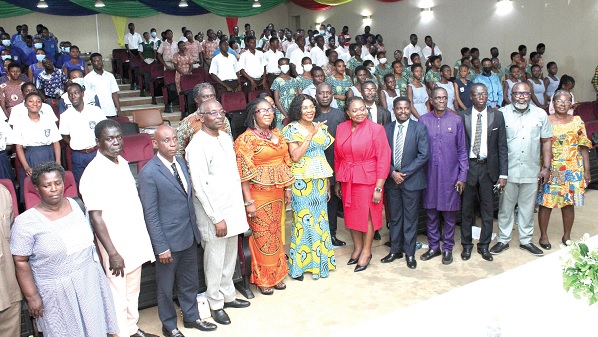Stakeholders in the country’s second cycle education space have been urged to support the free SHS policy to ensure that its benefits and values become a posterity policy of successive governments.
The Champions of Free Education Africa (COFEA), a non-governmental organisation, said it was willing to work with stakeholders to intervene to resolve challenges with the policy’s implementation.
Addressing an event to mark the sixth anniversary of the implementation of the programme, the Executive Director of COFEA, William Addo, said the aim was to disseminate the essence of the free SHS programme across the country.
“We hope to mobilise about 1.5 million parents, guardians and beneficiary students as an association in Ghana to enhance the viability of the programme,” he said.
He called on corporate Ghana and individuals to support the next festival to be held in Kumasi next year.
The event, dubbed, “COFEA Festival”, held in collaboration with the Ministry of Education, was aimed at motivating the public to appreciate the cost benefit and societal value of the free SHS policy, and to work to sustain it as a “divine initiative”.
It was on the theme: “Appreciating future socio-economic development of the Free SHS Policy (cost, benefits, challenges, values and honour) to the students, parents, Ghana, Africa and the global world".
The event also marked the launch of COFEA.
Quality Education
The Director in Charge of General Administration of the Ministry of Education, Catherine Agyapomah Appiah Pinkrah, stressed the government’s commitment to work to improve the quality of education in the country.
She urged beneficiaries of the policy to not take the policy for granted, describing it as an investment worth undertaking for the socio-economic advancement of the country.
“Let us appreciate the future socio-economic cost-benefit that free SHS brings Ghana.
It is a gift that keeps on giving,” she said.
Equitable access
The Director of EduWatch, Kofi Asare, urged the government to increase equitable access to education by removing the remaining cost barriers at the basic and SHS levels, particularly for deprived children.
Although he commended the achievements of the policy, he called the attention of the government to the declining enrolment into SHS.
He said the decline should be of concern, since enrolment in 2017 was 308,000 out of 460,000 who wrote BECE, representing 67 per cent with four billion Ghana cedis still allocated every year for the policy.
He urged the government to work to address the challenge that could be as a result of the high cost of prospectus.
Mr Asare said the average cost of prospectuses this year was GH¢6000 from 12 prospectus, sampled from lower category schools.
The Head of the University of Ghana Learning Centres, Dr Hayford Mensah Ayerakwa, for his part, said the feeding component of the policy must be reconsidered to allow parents and guardians to pay for the feeding of their wards.

